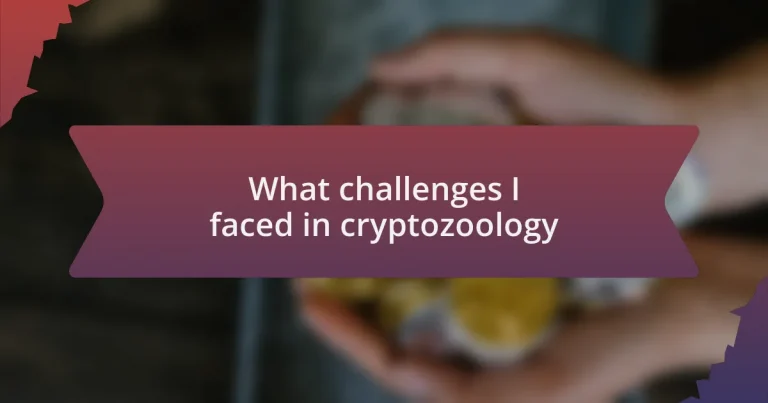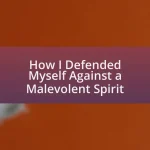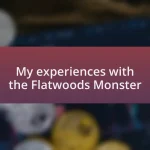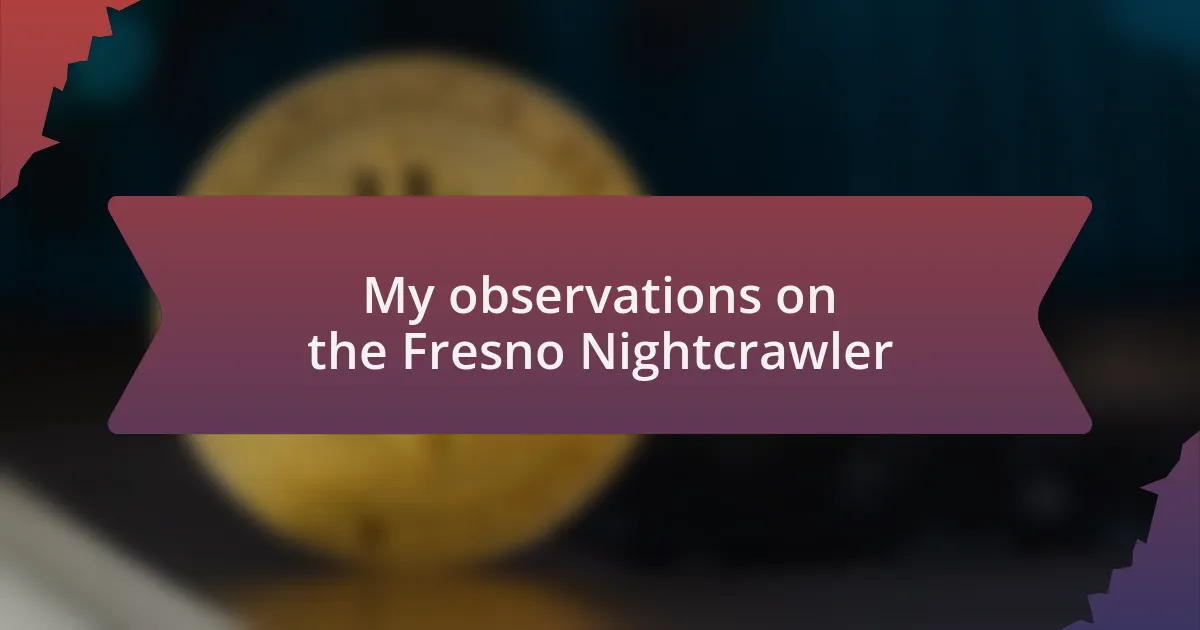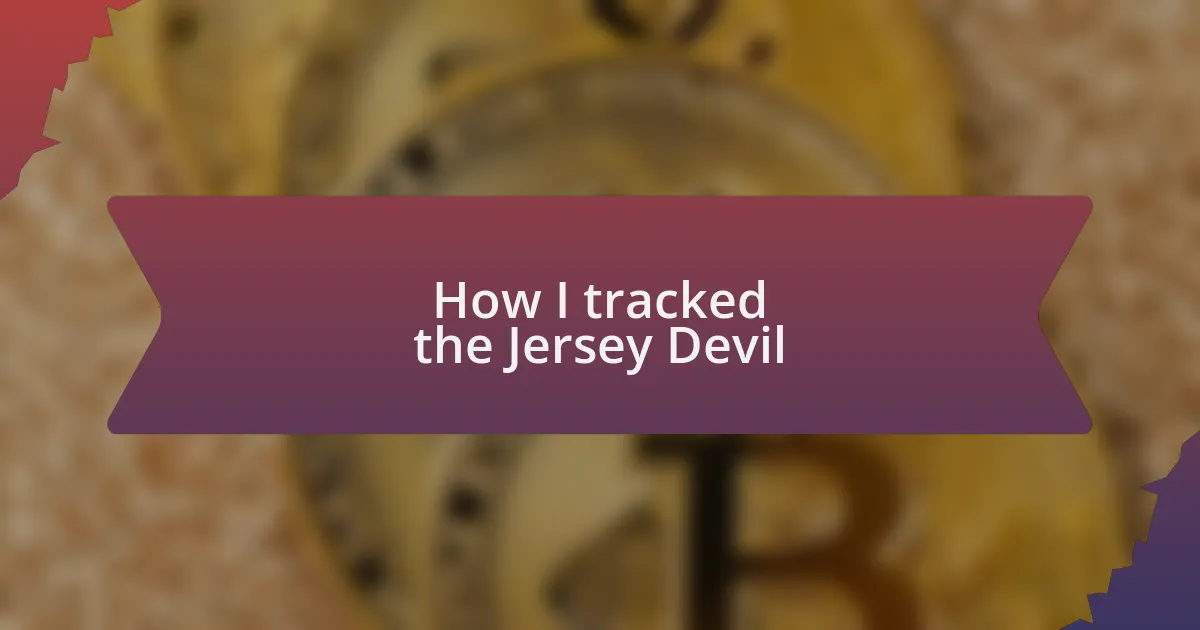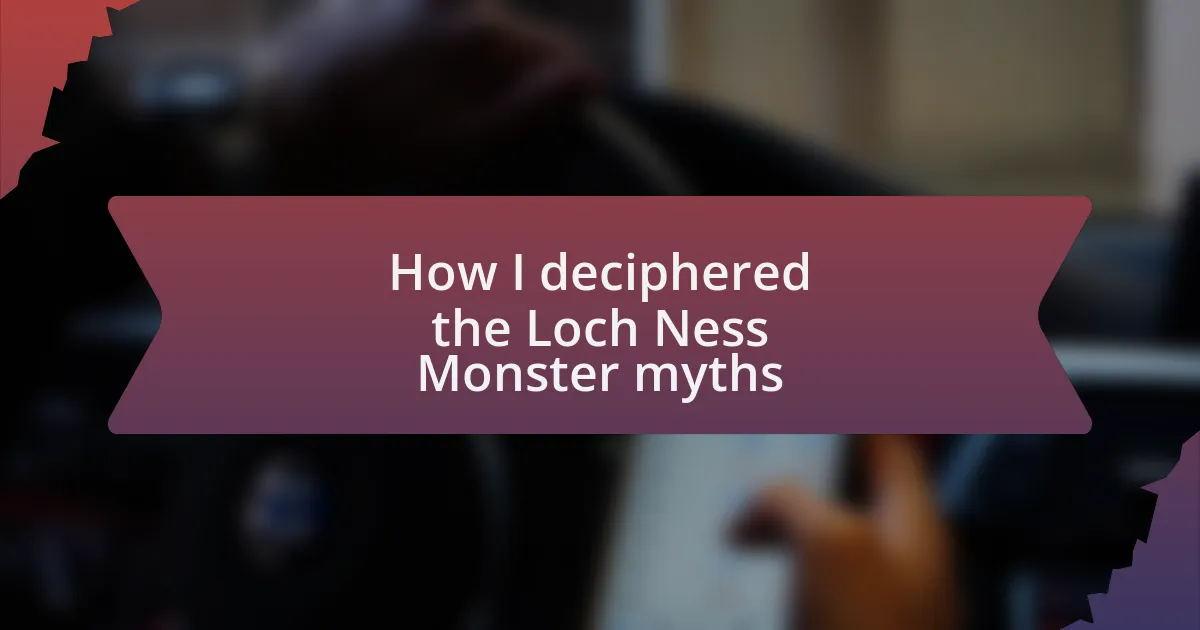Key takeaways:
- Cryptozoology faces significant challenges, including skepticism, lack of evidence, and limited resources, complicating the pursuit of elusive creatures.
- Field research is crucial for gaining insights and understanding, as it allows for direct experience and interaction with local communities, enriching the study of cryptids.
- Proper investigative equipment, such as cameras and audio recorders, is essential for capturing evidence and enhancing the possibility of discoveries in the field.
- Lessons learned from cryptozoology emphasize the importance of embracing uncertainty, collaboration, and perseverance in the face of skepticism and challenges.
Author: Evelyn Hartman
Bio: Evelyn Hartman is a contemporary author known for her evocative storytelling and rich character development. With a background in psychology, she weaves intricate narratives that explore the complexities of human relationships and personal growth. Her debut novel, “Whispers in the Wind,” garnered critical acclaim and established her as a powerful voice in modern literature. Evelyn resides in the Pacific Northwest, where she draws inspiration from the vibrant landscapes and diverse communities around her. When she’s not writing, she enjoys hiking, gardening, and spending time with her two rescue dogs.
Understanding cryptozoology challenges
Cryptozoology is an intriguing field, but it comes with numerous challenges. One of the most significant hurdles I’ve encountered is the skepticism that surrounds this area of study. When I mention my passion for tracking down elusive creatures, I often face raised eyebrows and dismissive comments. It makes me wonder: how can we convince others to explore the unknown if they are reluctant to even consider its existence?
Another challenge lies in the lack of solid evidence. While I’ve seen my fair share of fascinating stories and questionable photographs, it’s frustrating when scientific validation feels out of reach. For instance, I once spent weeks researching a local legend about a mysterious lake creature, only to find a few blurry videos and witness testimonies that didn’t add up. It’s moments like these that can really test your faith in the pursuit of these mysteries.
Time and resources are also pressing obstacles. I remember planning a field expedition that required meticulous preparation, only to realize that my budget was far too limited. It sparked a thought: How many potential discoveries are missed simply because not everyone has the means to investigate? Balancing passion with practicality is a tightrope walk in this unique field.
Overview of paranormal podcasts
Paranormal podcasts have become a vibrant platform for discussing everything from ghost hunting to cryptozoology. These shows often blend storytelling with firsthand experiences, inviting listeners into a world where the line between myth and reality frequently blurs. I remember the first time I stumbled upon a podcast featuring personal accounts of paranormal encounters; it felt like a community formed around shared curiosities and fears.
One distinctive aspect of these podcasts is their ability to provoke thought and discussion. Each episode dives deep into unique phenomena, often leaving me pondering the mysteries long after the final credits roll. Have you ever found yourself reflecting on a story about haunted places, convinced there’s more to the narrative? It’s precisely this engagement that not only entertains but also invites listeners to explore the more obscure elements of the paranormal.
Additionally, the accessibility of paranormal podcasts allows anyone with an interest to partake in these explorations. I cherish the way a simple commute or dinner preparation can transform into an immersive journey into the unknown. There’s something incredibly fulfilling about gathering insights and theories while multitasking—it’s as if the mysteries of the universe are unfolding just for me.
Importance of field research
Field research is the backbone of cryptozoology, offering insights that desk research simply can’t provide. I recall my own field experiences, where spending nights in the dense woods felt like a dance between curiosity and fear, especially during moments of eerie silence. Have you ever been in an environment so quiet that every rustle makes your heart race? That’s when the reality of the unknown sinks in.
The tangible connection to the environment during field research creates a deeper understanding of the subjects at hand. I remember capturing evidence—like unusual tracks or vocalizations—that made me question what I thought I knew. It’s incredible how direct encounters can challenge preconceived notions and spark fresh theories, encouraging me to think critically about what lies beyond accepted science.
Moreover, interacting with local communities often yields invaluable information that isn’t found in books or online databases. During my travels, I’ve met individuals with firsthand accounts that add depth to my own findings. This blend of personal stories and empirical data enhances the credibility of cryptozoology, making it a richer field. I often wonder, how many hidden truths are waiting to be unveiled just by striking up a conversation?
Equipment needed for investigation
When it comes to investigating cryptids, having the right equipment can make all the difference. My experience has taught me that a reliable camera can capture fleeting moments that might otherwise go unnoticed. There was this one night in the woods when I spotted a strange shape moving in the distance; if I had missed that shot, I would have regretted it forever. How many stories have gone untold because someone lacked the right gear?
In addition to cameras, audio recording devices are essential. I’ve often found that the smallest sounds—like a twig snapping or an unidentifiable call—can provide tantalizing clues. On one occasion, I recorded an eerie noise that, when played back, sent chills down my spine. It made me wonder, what if that sound was more than just nature? Sometimes I think the hidden secrets of cryptozoology lie not just in what is seen, but in what is heard.
Additionally, tools like night-vision goggles and thermal imaging cameras can reveal what the darkness conceals. I remember a particular night where the temperature dropped suddenly, and my thermal camera picked up an unusual heat signature in a nearby thicket. It was those moments that truly fueled my pursuit, as each piece of equipment brought me closer to uncovering the mysteries of the unknown. What if those tools are the key to unlocking a world we’ve only dreamed about?
Personal experiences in the field
During my field investigations, I’ve often found myself deeply immersed in the experience. One night, while trekking through a dense forest, I felt an overwhelming sense of being watched. It was eerie yet exhilarating, the kind of feeling that both terrified and thrilled me. I stopped and listened intently, wondering if I was about to encounter something extraordinary.
On another occasion, I had the chance to spend the night at a remote location known for its cryptid sightings. The tension in the air was palpable, and as darkness settled in, my heart raced with a blend of fear and anticipation. Suddenly, I heard rustling nearby, and the rush of adrenaline made me question everything I knew. Was it just the wind, or was something lurking just out of sight? Those moments remind me that the line between reality and the unknown can often blur in the quiet of the night.
I also learned the value of patience during my investigations. I once spent hours in a secluded spot, hoping to catch a glimpse of a rumored creature. As the sun set, I began to lose hope, but then I heard a distant call that sent shivers down my spine. What was it? In that fleeting moment, I grasped the essence of cryptozoology: the unyielding pursuit of answers, no matter how elusive they may be.
Key challenges I encountered
The quest for evidence in cryptozoology is often fraught with disappointment. I remember one evening in the swamps where I had set up a long night of monitoring. Hours passed with nothing but silence, and I felt the weight of solitude pressing down on me. Was all this effort in vain? Yet, it was in that quiet, tedious wait that I learned the importance of resilience in the face of uncertainty.
Equipment failure is another hurdle that can derail an investigation at any moment. On one expedition, just as I was about to record what I hoped would be a significant find, my camera malfunctioned. My heart sank as I frantically pressed buttons, but that taught me an essential lesson: always have backup gear ready. How could I expect to capture the extraordinary if I wasn’t prepared?
Then there’s the challenge of convincing others about the realities of cryptozoology. I once shared findings with a skeptical group of friends who met my enthusiasm with laughter. It struck me that bridging the gap between my passion and their disbelief was a significant part of this journey. What do I do when faced with doubt? I simply keep sharing my experiences, one story at a time, hoping to ignite the same curiosity in them that fuels my investigations.
Lessons learned from cryptozoology
The unpredictable nature of cryptozoology has taught me to embrace uncertainty as a vital part of the exploration process. One night, while camping in a remote area, I heard rustling nearby and felt a mix of excitement and apprehension. That moment made me realize that not every sound translates into a discovery; sometimes, the journey itself holds more significance than any findings. How can we learn if we aren’t prepared to be surprised?
Another important lesson revolves around the value of collaboration. During a group expedition, I found myself relying heavily on the diverse skills of my teammates. Whether it was someone’s expertise in tracking animal behavior or another’s knack for photography, we thrived on each other’s strengths. This experience highlighted the fact that no one can do it all alone—sharing knowledge enriches our understanding of the mysterious worlds we explore.
Lastly, I’ve learned that perseverance is vital, even in the face of skepticism. I vividly recall presenting a compelling theory about a local legend to a lecture hall filled with doubt. As I faced the skepticism head-on, I asked the audience to keep an open mind. By staying passionate and persistent, I began to see shifts in their perceptions, illustrating that resilience not only strengthens my resolve but can also foster curiosity in others. How powerful is that?
